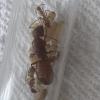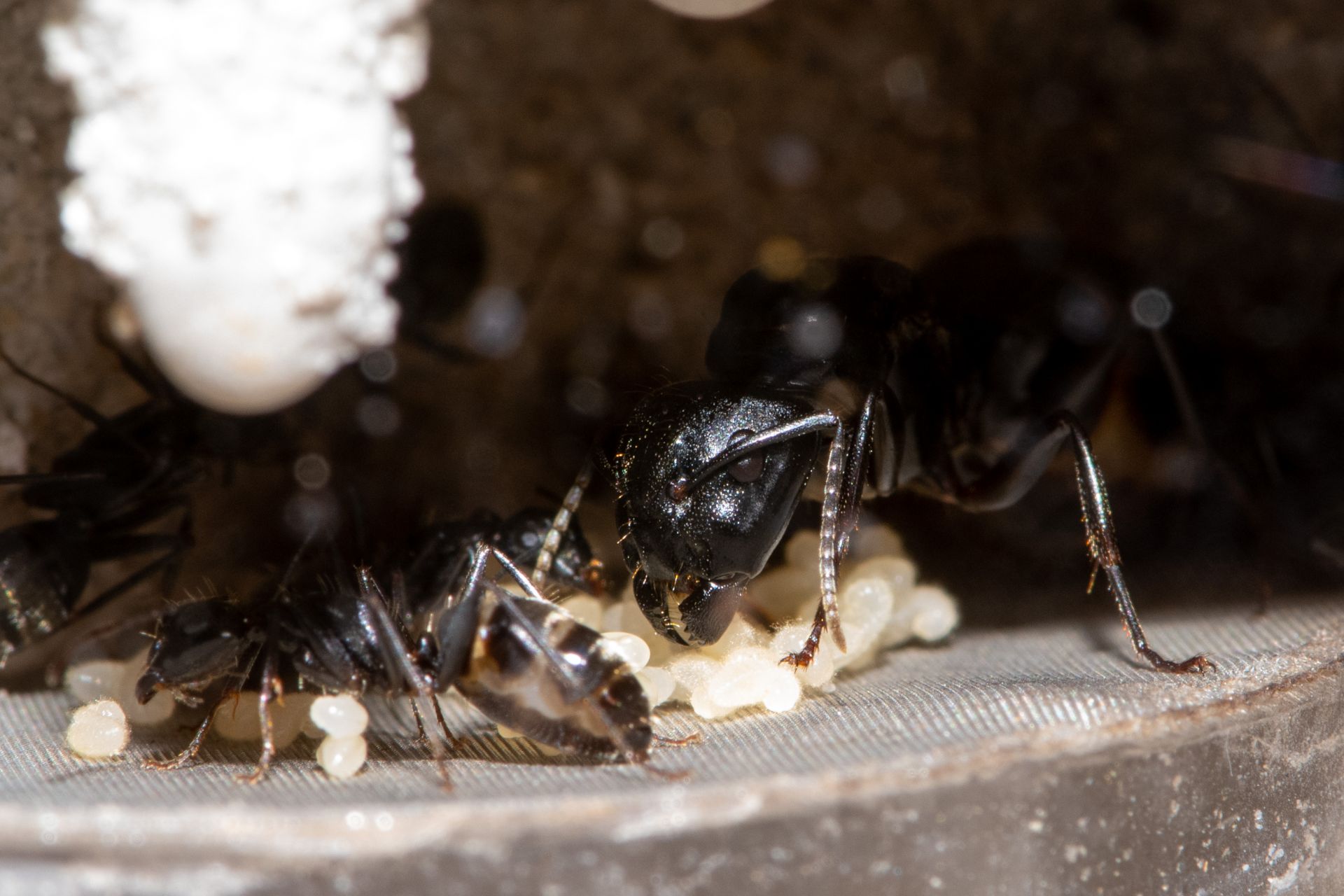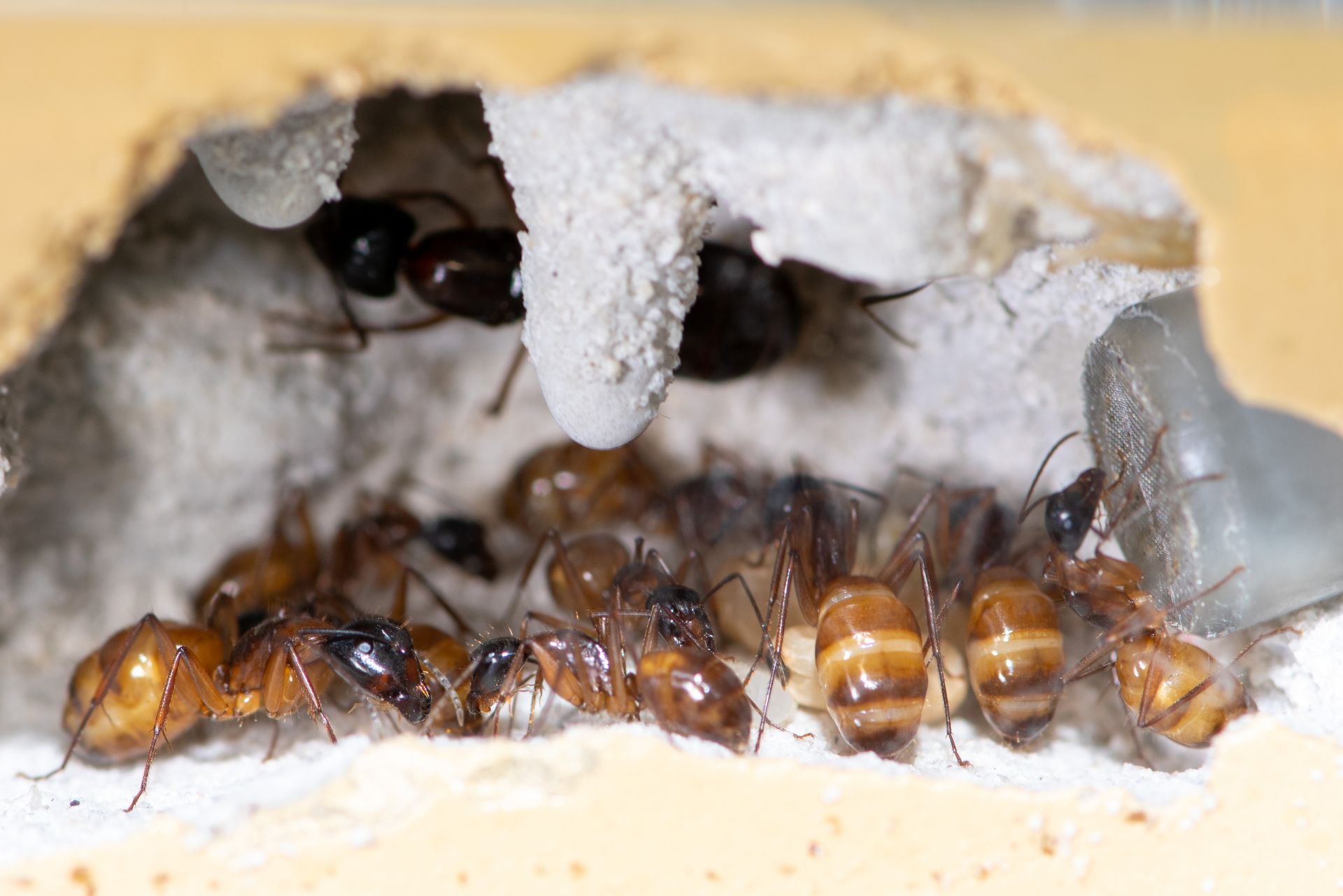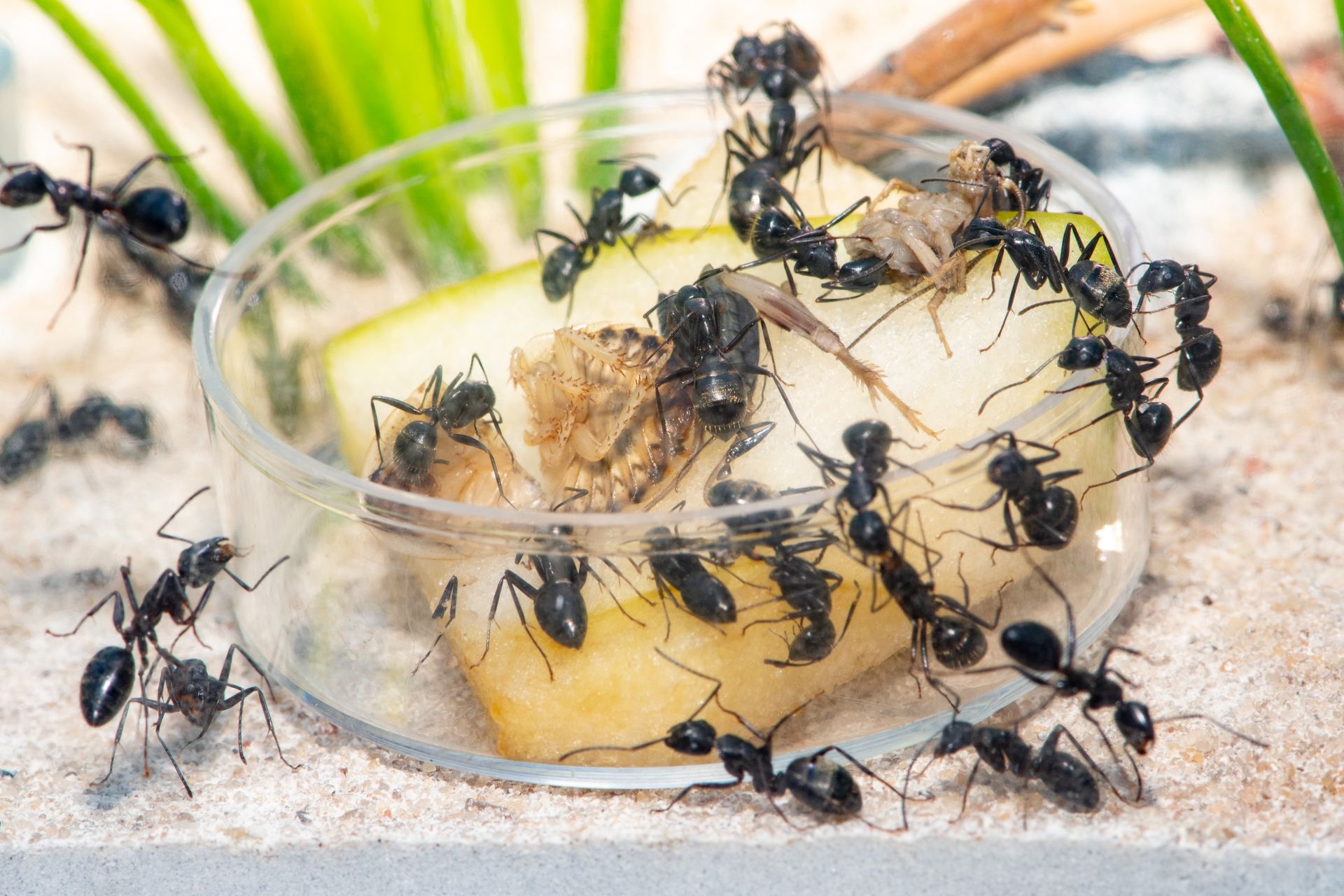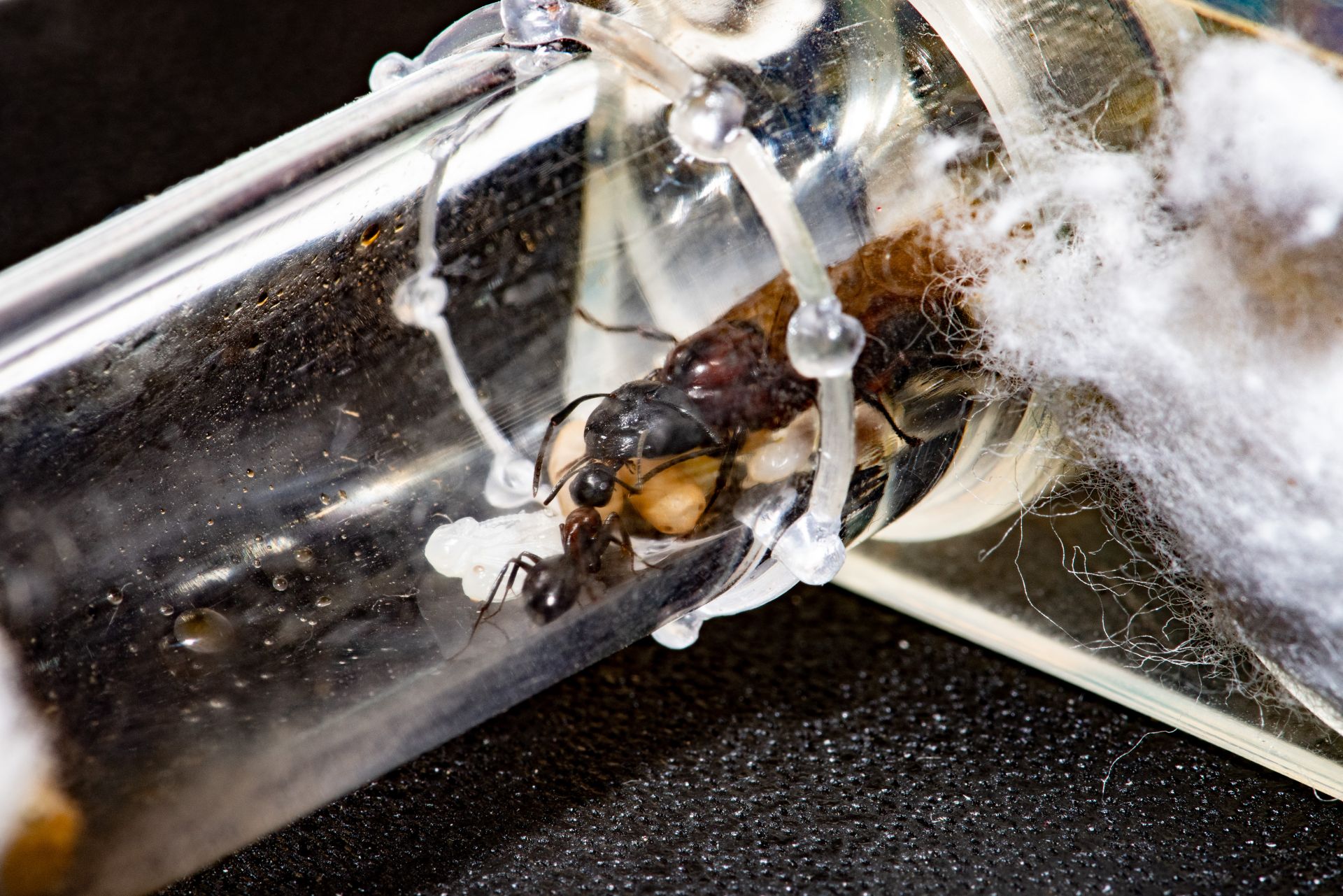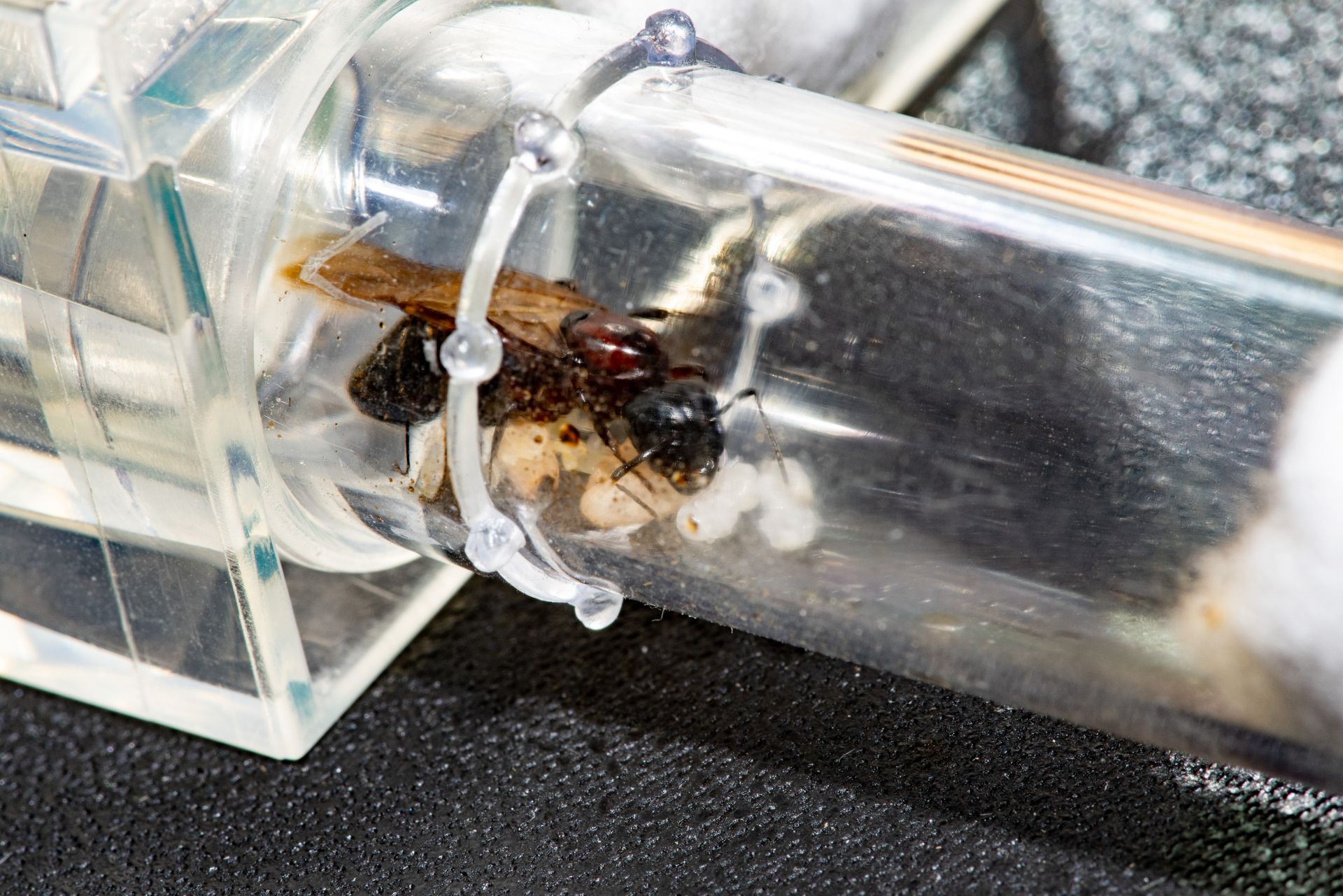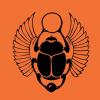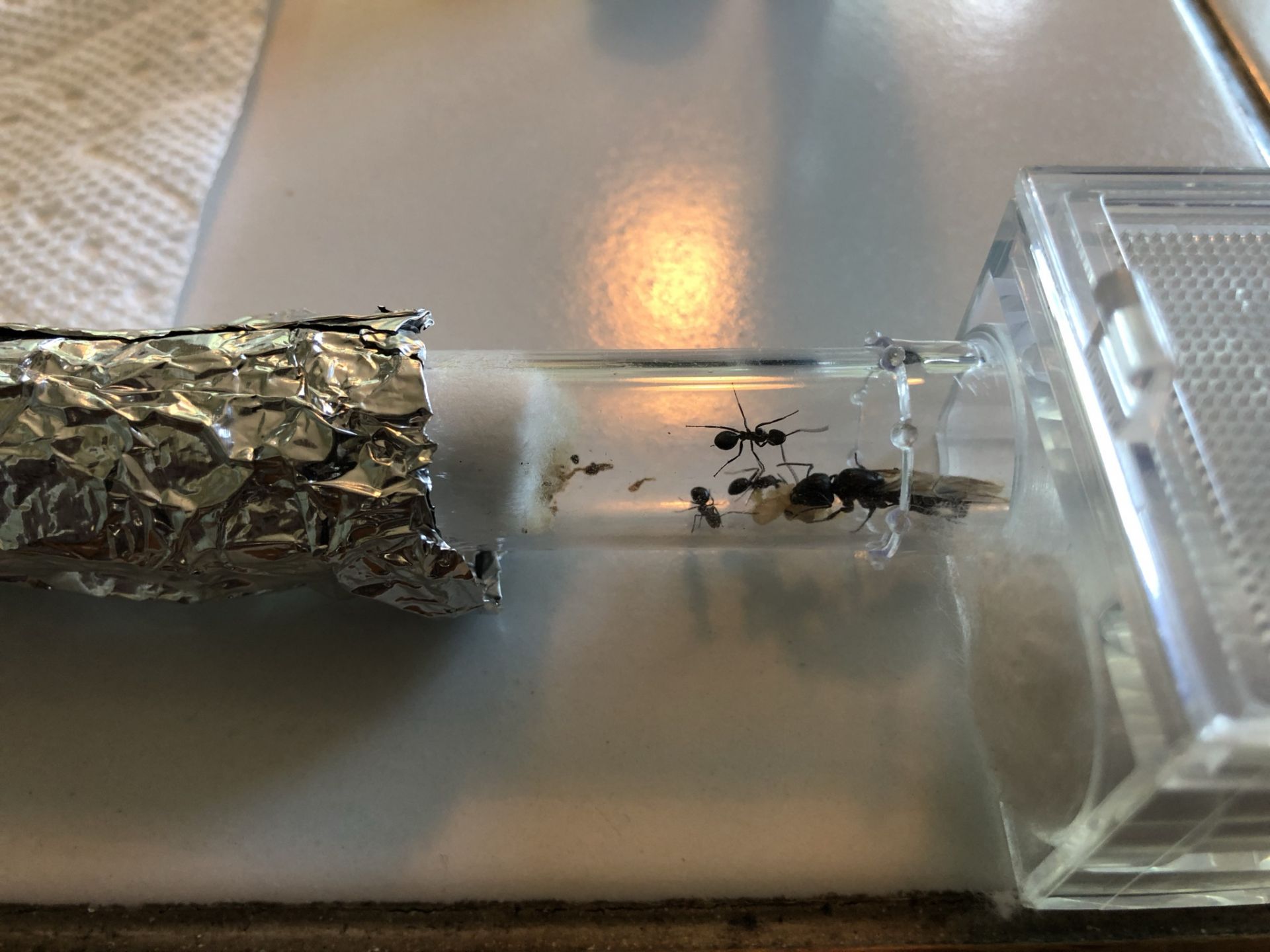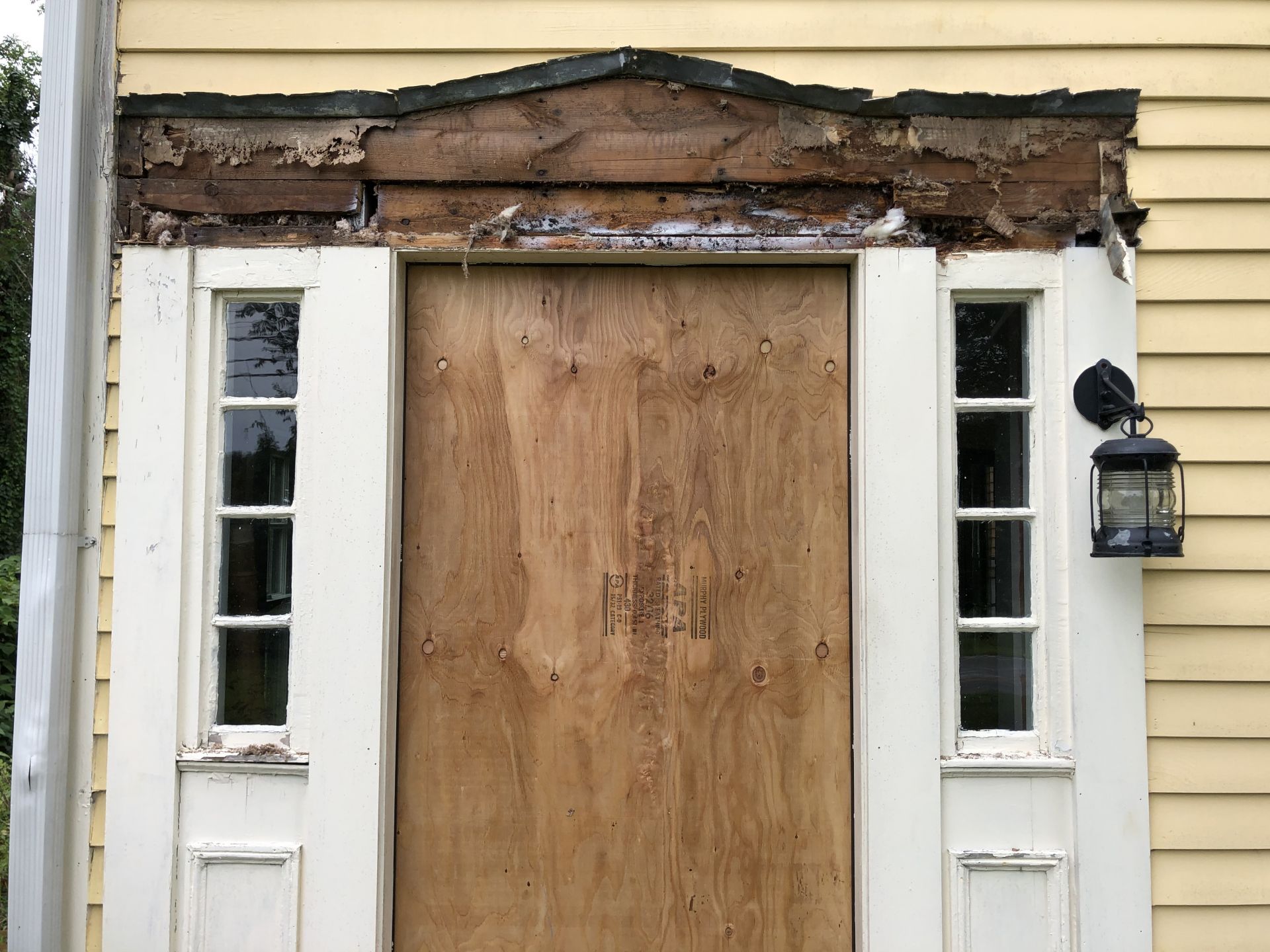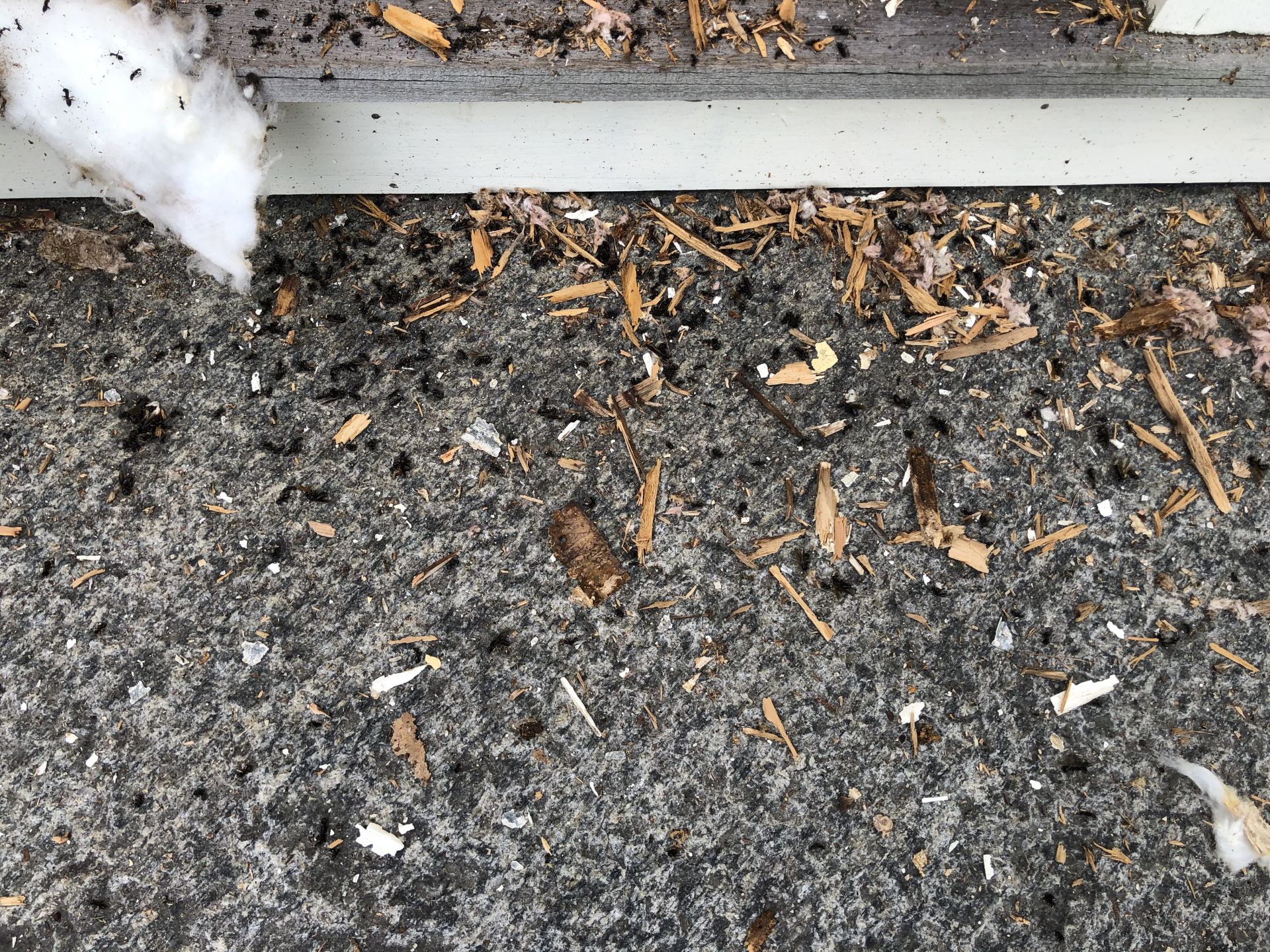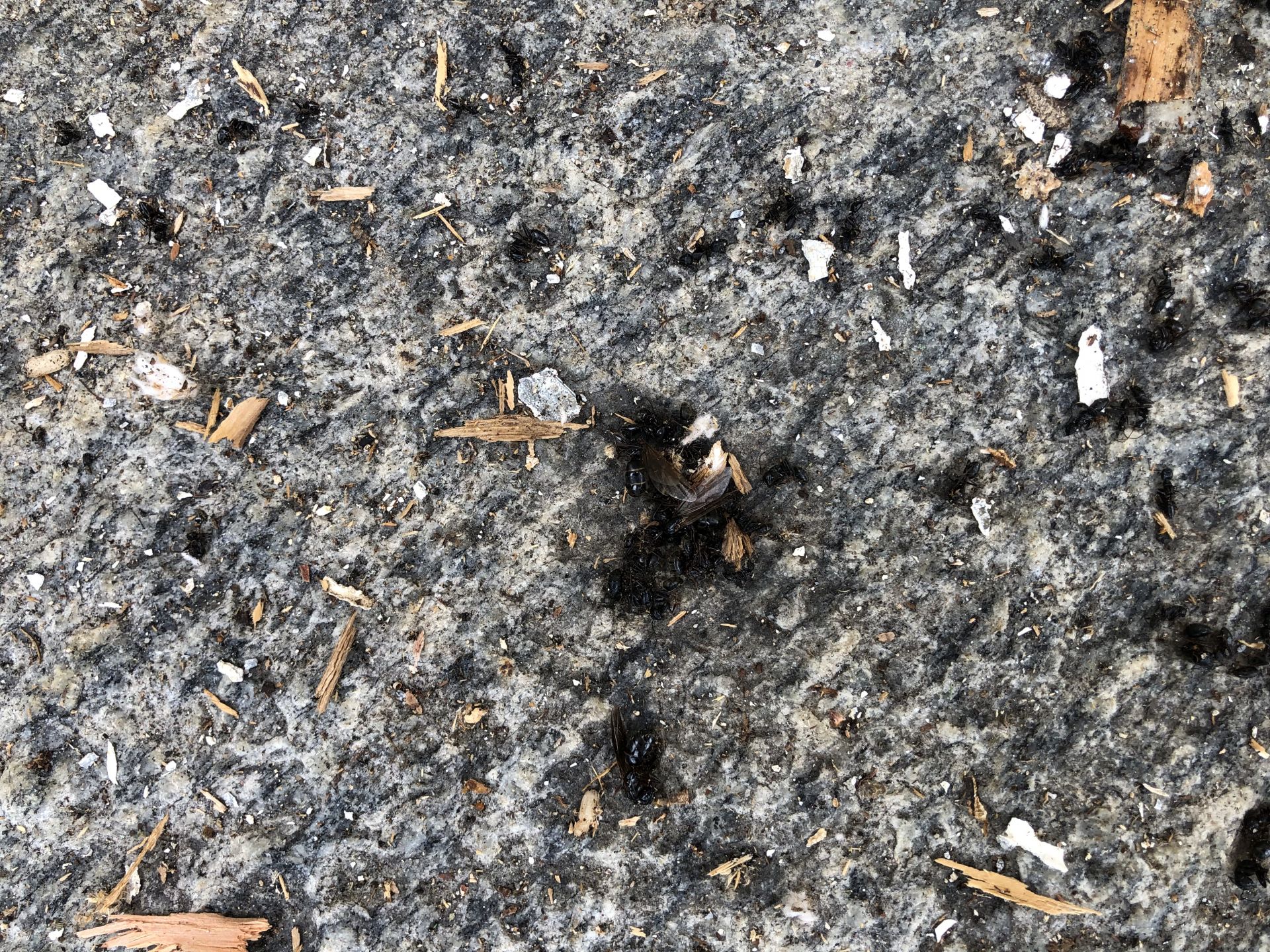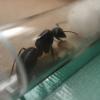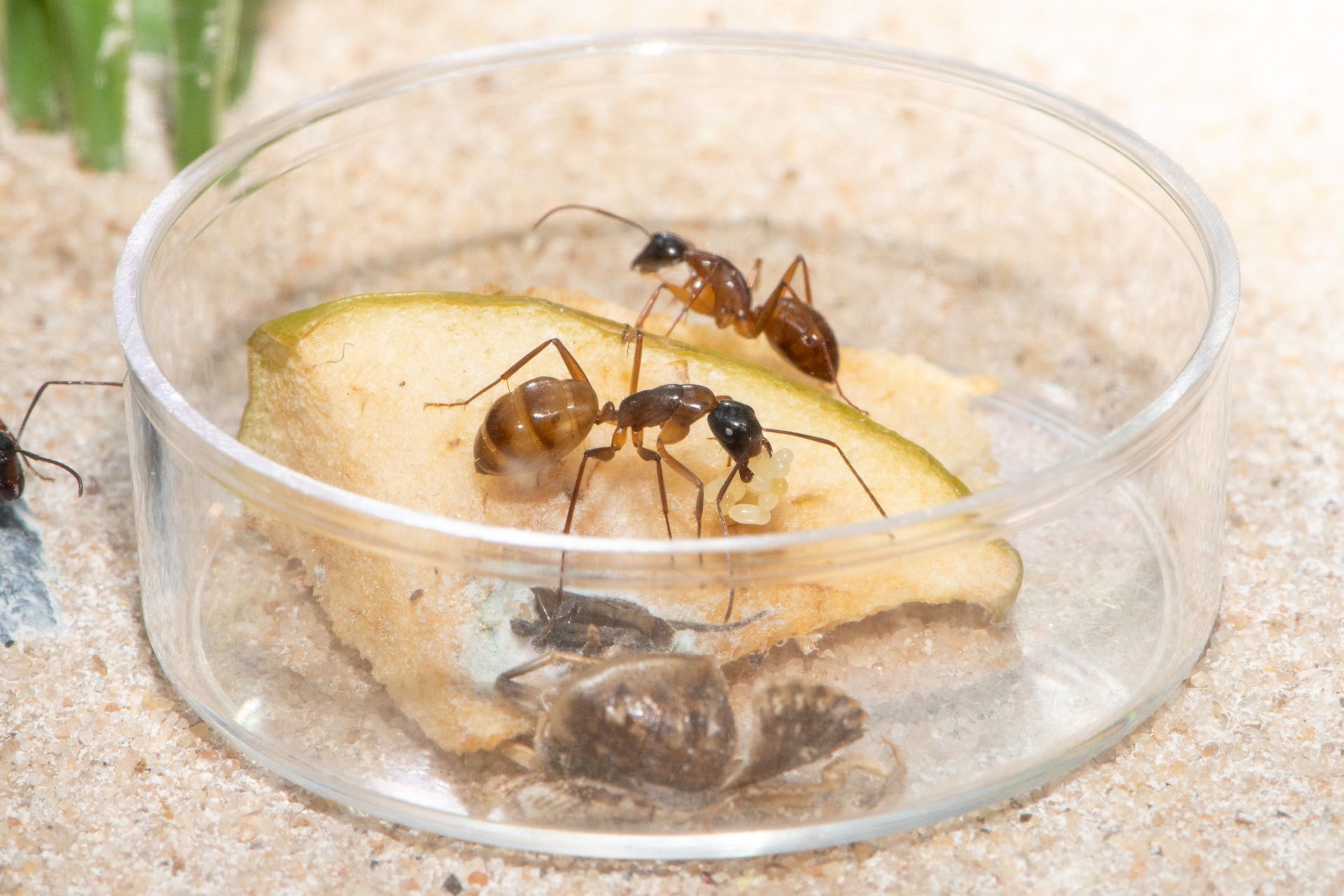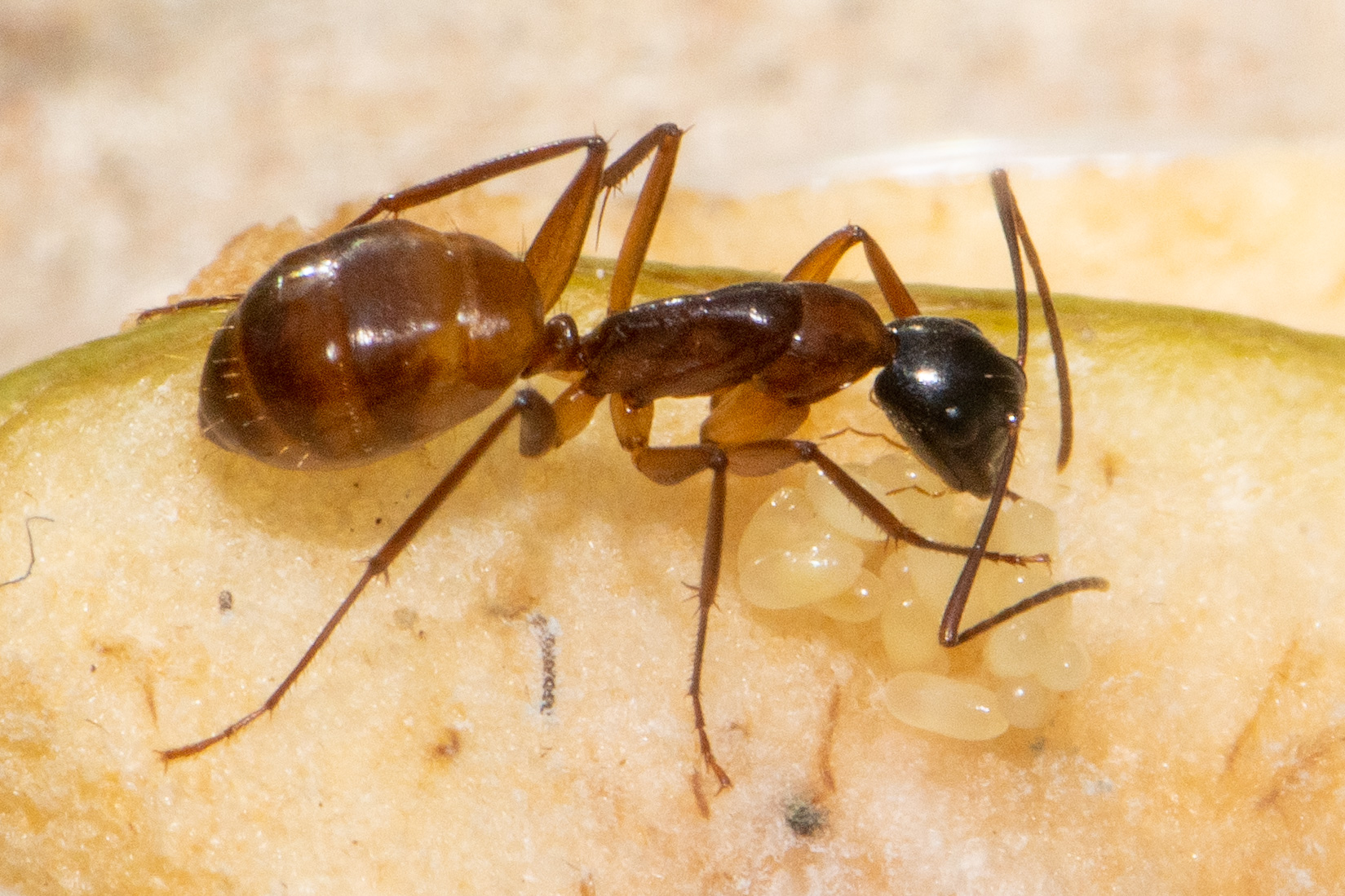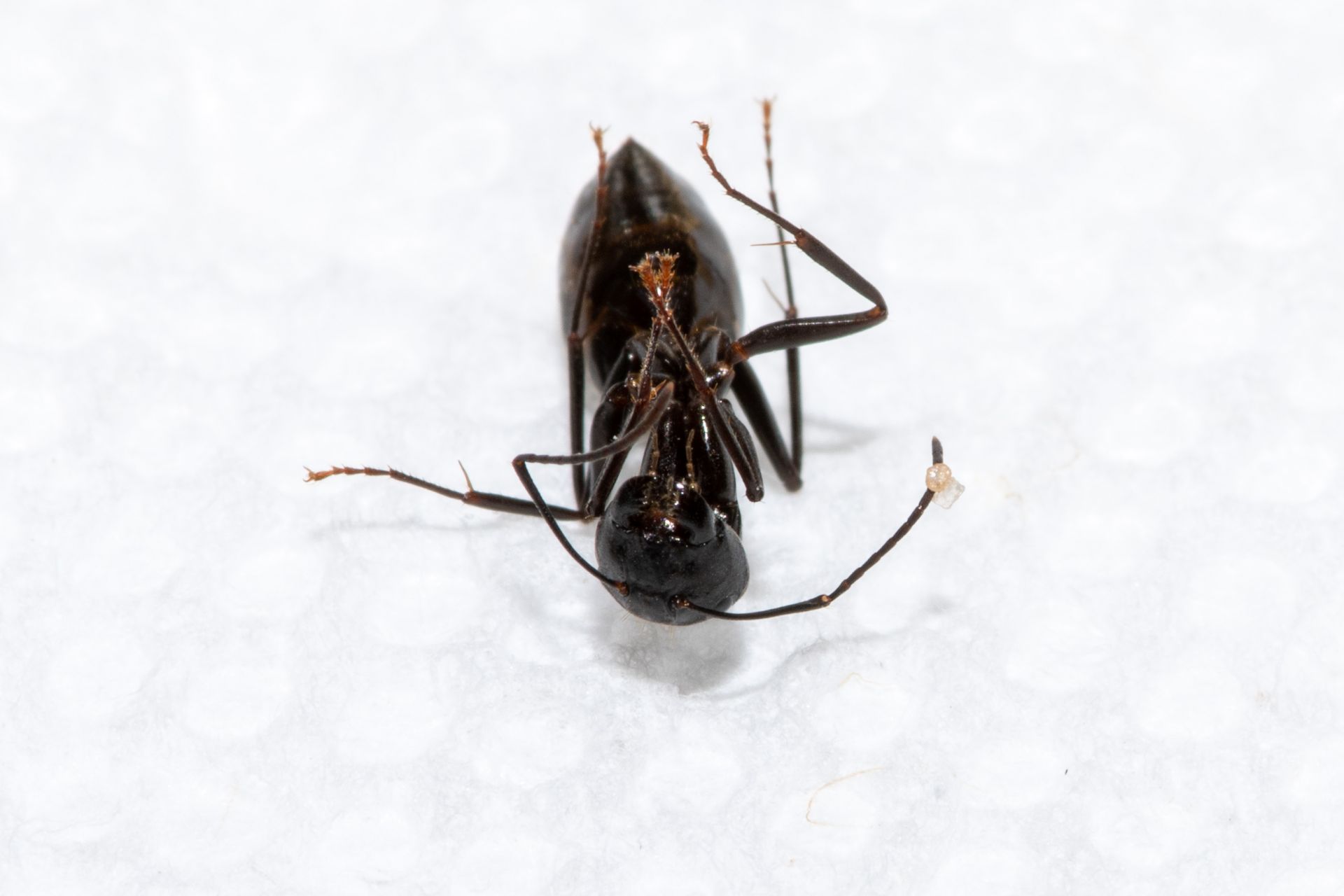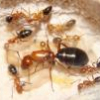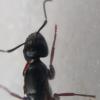Thankfully, feeding has returned to being a routine chore, no loose plugs, no escapees, no drama! My largest C. pennsylvanicus colony continues to roll on while I’m noticing more timid foraging from my 2020 C. penns. The queen is active, with a brood pile of eggs and larvae. Several workers have eclosed but there have also been some deaths of the nanitics. We’ll see… The C. americanus are feeding much more aggressively with a small brood pile of pupae, larvae and eggs. I’ll accept their slow growth as a win. My 2020 C. novaeboracensis has gone to town. I might have 20-30 by the fall!?!
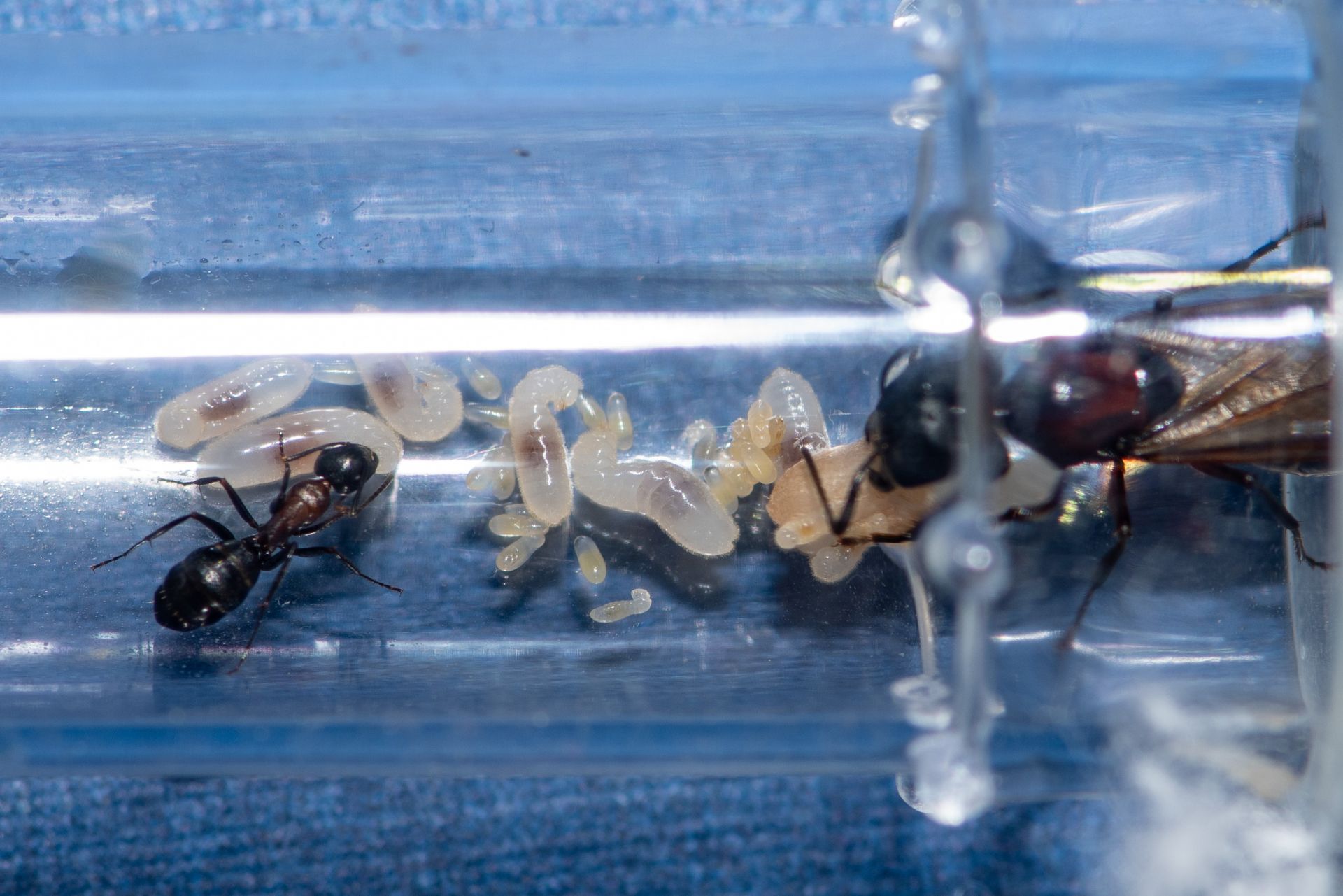
Through an unlucky combination of their constitution and my clumsiness, none of her nanitics survived more than a month past their first diapause. She eclosed her first nanitic 2.0 stillborn (which I attributed to depleted resources from me chilling all my colonies a month while we were out of town babysitting a new grandson!). This second nanitic 2.0, “Little One” is just about 2 weeks old.
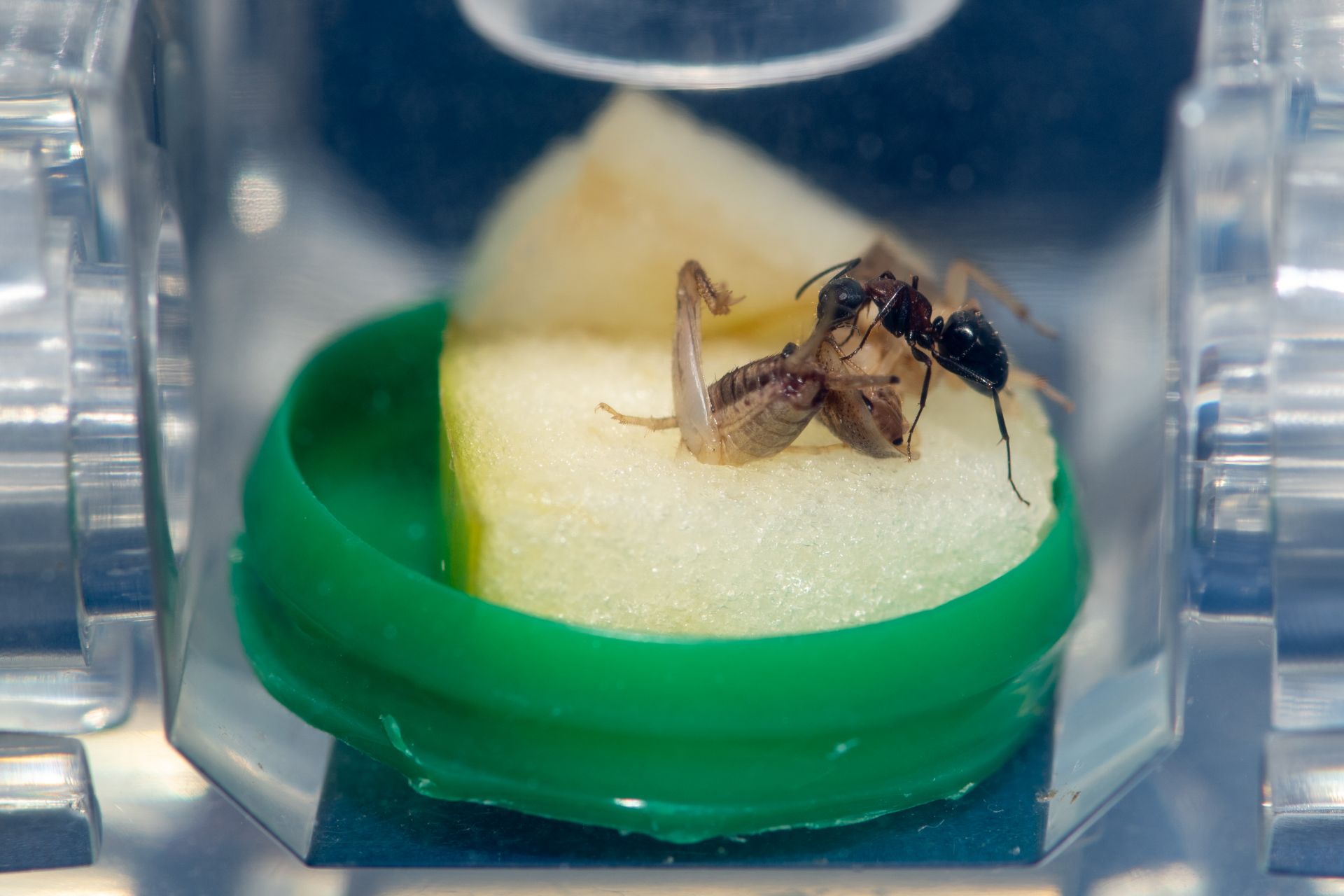
I noticed her shortly after she had eclosed. Initially, she appeared helpless. She didn’t move around much or even forage. The queen groomed and tended her while she continued to forage for herself. It’s been interesting over the past 7-10 days to watch as Little One learned the ropes, began to forage for the queen, and tidy up the test tubes.





